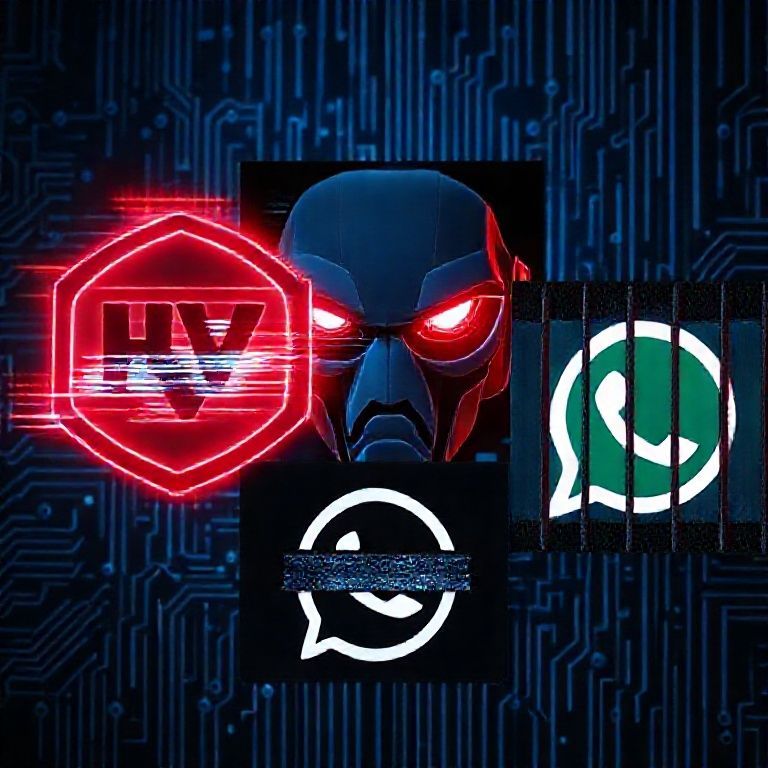Hey everyone, hope your week wasn’t too crazy in the digital world! I wanted to share some eye-opening stuff I saw over at The Hacker News that really highlights how rapidly cyber threats are changing. It’s not just about the same old phishing scams anymore; things are getting way more sophisticated.
Think about it: we’re now seeing malware that can hide inside virtual machines, like those created with Hyper-V. That’s like hiding a thief inside a locked room! And it gets worse. Apparently, researchers have uncovered ways to exploit side-channel leaks in AI chats, potentially exposing sensitive information. Imagine sharing confidential business plans, only to have them leaked because of a flaw in the AI system you thought was secure!
According to a report from Verizon, RDP compromises are a significant attack vector, accounting for a substantial percentage of all data breaches (Verizon Data Breach Investigations Report). This means that neglecting to secure your Remote Desktop Protocol could leave your organization vulnerable to serious attacks.
The article also touched on spyware targeting Android devices. This quietly operates in the background, gathering data without you even knowing. And to top it all off, even WhatsApp isn’t entirely immune, with potential vulnerabilities requiring constant vigilance and updates. This is further complicated by reports suggesting that 97% of Android apps request to track user data, even when the app isn’t in use, highlighting the pervasive nature of data collection and the increased risks involved (Cybernews Data Tracking Statistics).
But the scariest thing? The piece mentioned alliances forming between major threat groups and the use of sleeper logic bombs. We’re talking about long-term, planned attacks that can cause major damage when triggered. It’s a whole new level of cyber warfare.
5 Key Takeaways for the Week:
- Virtual Machine Threats are Real: Don’t assume your VMs are automatically safe. Implement specific security measures.
- AI Isn’t a Fortress (Yet): Be cautious about sharing sensitive data with AI tools, and keep an eye on the latest security research.\n3. RDP Security is Critical: Lock down your Remote Desktop Protocol connections! Use strong passwords, multi-factor authentication, and network-level authentication.
- Mobile Security Matters: Review app permissions on your Android devices and be wary of suspicious apps. Install reputable antivirus software.
- Cybercrime is Collaborating: Stay informed about emerging threat alliances and adapt your security strategies accordingly. Sharing threat intelligence is becoming increasingly important.
It really drives home the point that cybersecurity isn’t a one-time fix. It’s a continuous process of learning, adapting, and staying one step ahead of the attackers. We need to constantly update our knowledge and security measures to protect ourselves and our organizations.
FAQ:
- What is Hyper-V and why is malware targeting it? Hyper-V is a virtualization platform from Microsoft, letting you run multiple operating systems on one physical machine. Malware targets it because if it compromises the Hyper-V host, it can potentially control all the virtual machines running on it.
- What are “side-channel leaks” in AI chats? These are unintentional leaks of information from AI systems, often through subtle signals like processing time or power consumption. Attackers can exploit these leaks to extract sensitive data.
- Why is RDP such a popular target for attackers? RDP is frequently used for remote access, making it a convenient entry point for attackers who want to gain control of a system or network. If not properly secured, it’s an easy target.
- What’s a “sleeper logic bomb”? A sleeper logic bomb is malicious code inserted into a system that remains dormant until a specific condition is met, such as a date or a particular event. When triggered, it can cause significant damage.
- How can I protect my Android device from spyware? Be careful about which apps you install, review app permissions, install a reputable antivirus app, and keep your operating system and apps up to date.
- What is Multi-Factor Authentication (MFA) and why is it important for RDP? MFA adds an extra layer of security to your login process by requiring a second form of verification (like a code from your phone) in addition to your password. This makes it much harder for attackers to gain access, even if they have your password.
- What are the most common vulnerabilities in WhatsApp? Common vulnerabilities can include issues with encryption, media handling, and message processing. Regularly updating WhatsApp is crucial to patch these vulnerabilities.
- How can businesses in Cameroon protect themselves from these threats? Implement a strong cybersecurity strategy, train employees on security best practices, use firewalls and intrusion detection systems, and regularly back up data. Consider working with a local cybersecurity expert for tailored advice.
- What are the potential consequences of a successful cyberattack on a small business? Consequences can include financial losses, reputational damage, loss of customer data, and disruption of business operations. In some cases, it can even lead to closure.
- Where can I find more information on the latest cyber threats? Reputable sources include The Hacker News, KrebsOnSecurity, the Verizon Data Breach Investigations Report, and security blogs from companies like Kaspersky and Sophos. You can also follow cybersecurity experts on social media.

